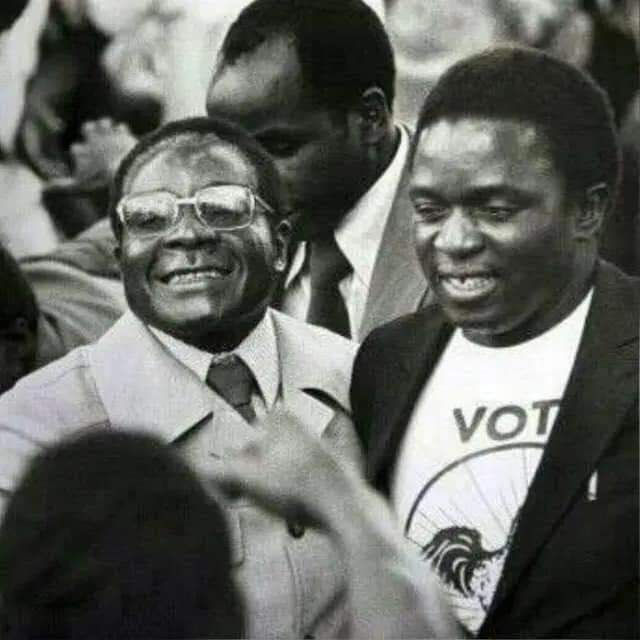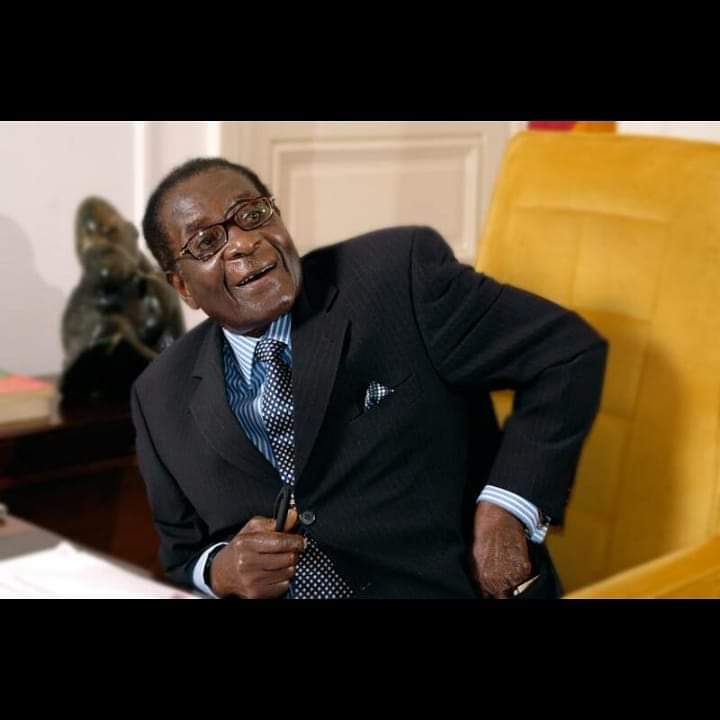Robert Mugabe, a life of politics
Share

Harare,(New Ziana) – Zimbabwe’s founding father, former President Robert Gabriel Mugabe, has died.
He was 95, and died on Friday in Singapore where he was receiving medical treatment.
Mugabe ruled the country for 37 years from independence in 1980, to 2017.
He was born on February 21, 1924 in Kutama village, Zvimba district, Mashonaland West province.
Mugabe and his three siblings were brought up by their mother, Bona after their father, Gabriel Matibili abandoned the family when the country’s future leader was still very young.
Although many people in the then Southern Rhodesia went only as far as grammar school owing to discriminatory practices of the colonial government, Mugabe was fortunate to receive a good education.
He attended the local Kutama Mission School in Zvimba run by the Jesuits under the supervision of Father Jerome O’Hea, who would have profound influence on him throughout his life.
Father O’Hea taught Mugabe that all people should be treated equally and educated to the fulfilment of their abilities, values which inspired Mugabe to become a teacher in order to pass these on to others.
Over the course of nine years, he studied privately while teaching at a number of mission schools in then Southern Rhodesia.
Mugabe continued his education at the University of Fort Hare in South Africa, obtaining a Bachelor of Arts degree in history and English in 1951, his first of seven degrees he had.
He then returned home to teach. In 1953, he earned a Bachelor of Education degree through correspondence.
In 1955, Mugabe moved to Northern Rhodesia (now Zambia) where he taught for four years at Chalimbana Training College while also working towards his Bachelor of Science degree in economics through correspondence with the University of London.
He later moved to Ghana in 1958 where he completed his economics degree while teaching at St. Mary’s Teacher Training College, where Mugabe met his first wife, Sarah Heyfron, and married her in 1961.
In 1960, he came home while on leave to introduce his fiancée to his mother, but ended up getting involved in independence politics that was brewing among the country’s majority blacks.
Coming from newly independent Ghana, Mugabe easily joined the black political movement in then colonial Rhodesia, and was soon elected secretary general of the National Democratic Party.
The party was quickly banned by the colonial authorities, prompting him and other nationalists to form the Zimbabwe African People’s Union (ZAPU) under the leadership of the late Vice President Joshua Nkomo.
In 1963, Mugabe and other former leaders broke away from ZAPU and formed the Zimbabwe African National Union (ZANU).
Later that year, Mugabe was arrested by the colonial authorities and imprisoned at Hwahwa, where he would remain for over a decade. During the same time he was also detained at Sikombela Detention Centre and Salisbury Prison.
In 1964, while in prison, Mugabe – through secret communications – set the groundwork to launch guerrilla operations to depose British colonial rule.
In 1974, Prime Minister Ian Smith allowed Mugabe to leave prison to attend a conference in Zambia, but he instead escaped back across the border to Southern Rhodesia, and started assembling a guerrilla army to fight for independence.
He waged the guerrilla war from Mozambique, while Nkomo did the same from Zambia.
In 1979, after Smith had tried in vain to dupe Mugabe and Nkomo to end the war on his terms, the British brokered an independence agreement at Lancaster House talks in London, leading to Uhuru in April 1980.
In 1980, running under the ZANU party ticket, Mugabe was elected Prime Minister of the new republic, defeating Nkomo and other contestants in the first elections in which blacks were allowed to vote.
But the two former guerrilla leaders came together in 1987, and formed one party, ZANU-PF, which still rules the country today.
Shortly after signing a Unity Accord, Mugabe was appointed Executive President of Zimbabwe and chose Nkomo as one of his two deputies.
Mugabe’s rule, however, became turbulent in the 2000s after former colonial master Britain teamed up with local trade unionists to form a party to oppose his government’s land reforms which targeted white farmers.
Earlier, the government had passed a law to compulsorily acquire farms from white farmers to resettle landless blacks, a stance which Britain vehemently opposed.
In addition to organising and financing the opposition, London mobilised the European Union and the United States to impose sanctions on Zimbabwe to help weaken Mugabe’s grip on power.
Indeed in 2008, Mugabe for the first time lost an election to the opposition, but Movement for Democratic Change (MDC) leader Morgan Tsvangirai did not garner enough votes to avoid a second round with Mugabe.
Tsvangirai pulled out of the second round, alleging violence and intimidation against his supporters.
But the two later that year agreed to form a coalition government in talks that were brokered by former South African President Thabo Mbeki on behalf of the Southern Africa Development Community.
But in 2013, Mugabe defeated Tsvangirai in elections that were widely accepted as credible and fair, and the MDC leader returned to opposition politics where he remained until his death in 2018.
However, in manoeuevrings that were seen as grooming his wife Grace to take over from him, Mugabe began a ruthless purge of all he suspected of eying his positions both in the party and government.
He first culled Vice President Joice Mujuru and those seen as her supporters in a campaign led by Grace, and later similarly turned on then Vice President Emmerson Mnangagwa, who had taken over from Mujuru.
The purges were both public and brutal, and left little to imagination of the beneficiary – Grace.
This prompted his party to recall Mugabe as leader in 2017, and he subsequently resigned under pressure of parliamentary impeachment.
This sparked wild celebration from across the nation from a citizenry which had grown weary of Mugabe’s handling of state affairs, particularly the economy, and his manoeuvre to hand power to his wife.
In bitterness, Mugabe broke ranks with the party he co-founded, and in last year’s elections publicly embraced the MDC’s candidate, Nelson Chamisa, on the eve of the polls.
This failed to sway voters, however, and ZANU-PF candidate President Mnangagwa won the election handily. Outfoxed, Mugabe congratulated his successor, albeit grudgingly.
Despite being hounded out of office brutally and humiliatingly, President Mnangagwa extended an olive branch to the former President, and accorded him all the respect and priviledges of the top office he held.
New Ziana









